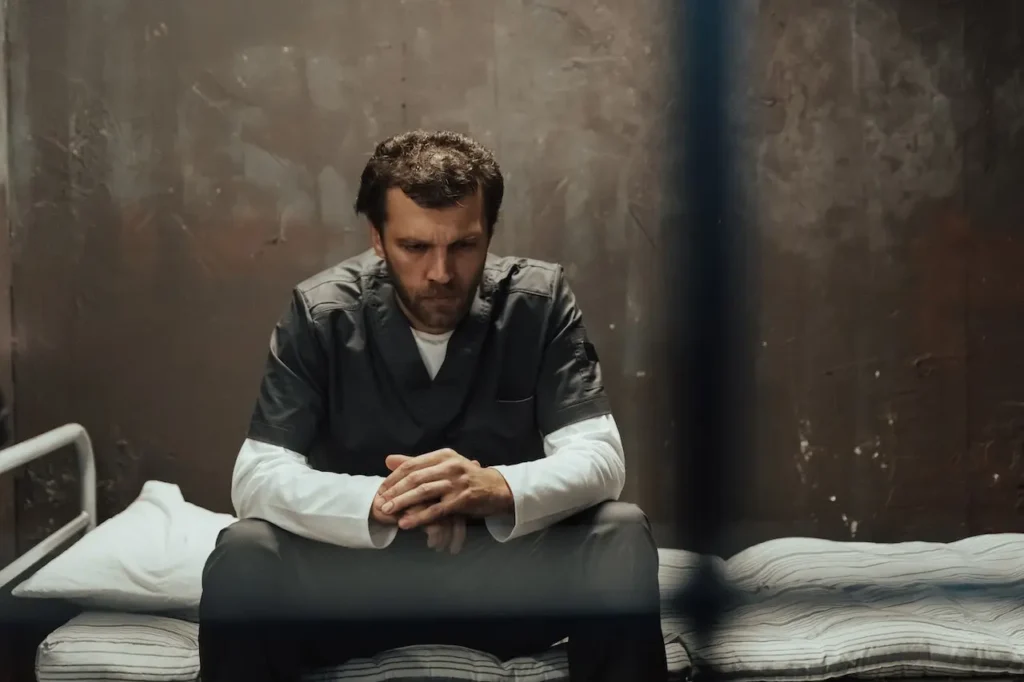
Wrongful Conviction: Appealing a Criminal Conviction in North Carolina
According to the Georgia Innocence Project, some studies show that as many as one in 20 criminal cases result in a wrongful conviction. These wrongful convictions are a tragic miscarriage of justice that can happen anywhere, including in the state of North Carolina. While they don't happen often, it's important to consult a criminal defense attorney if you feel you have been wrongfully convicted.
If you or a loved one have been wrongfully convicted, it is crucial to understand the legal process for appealing such convictions—and to act quickly. Keep in mind that not everyone is not eligible for filing an appeal.
At Van Camp, Meacham & Newman, our experienced attorneys have represented several clients in cases of criminal appeals. Here, we’ll guide you through the steps to appeal a wrongful conviction in North Carolina: From what kinds of cases are eligible for appeals, to how to file correctly, to what happens after a successful appeal.

Table of Contents
What is a Wrongful Conviction?
The term wrongful conviction refers to a court decision in which innocent individuals are found guilty of crimes they did not commit. This might occur for a number of reasons, but they are most commonly attributed to errors, misconduct, or flaws in the criminal justice process.
The result of these convictions can be devastating for all parties involved: The individual who is wrongfully convicted, their families, and the justice system as a whole.
Common Causes of a Wrongful Conviction
- Mistaken Eyewitness Identifications: One of the leading causes of wrongful convictions is mistaken eyewitness identifications. Human memory is fallible, and factors such as stress, fear, and suggestive questioning can lead to the misidentification of suspects.
- False Confessions: Innocent individuals may sometimes confess to crimes they didn't commit, as a result of coercive interrogation techniques, stressful or intimidating police interviews, or even mental illnesses or cognitive disabilities.
- Inadequate Legal Representation: Some wrongful convictions stem from inadequate legal representation. Defendants without access to skilled attorneys may not receive a proper defense, leading to unfair trials and erroneous verdicts.
- Prosecutorial Misconduct: Prosecutors have a duty to seek justice, but instances of misconduct, such as withholding evidence or presenting false information, can contribute to wrongful convictions.
- Flawed Forensic Evidence: Forensic evidence, although often considered irrefutable, can be flawed. Mistakes in analysis or interpretation of evidence by forensic experts can lead to wrongful convictions.
- Racial Bias: Unfortunately, racial bias can play a significant role in wrongful convictions. People of color are disproportionately affected, as they are more likely to be targeted, arrested, and convicted based on stereotypes and prejudice.
Consequences of Wrongful Convictions
The consequences of wrongful convictions are far-reaching and deeply disturbing, for everyone involved. They include:
- Loss of Freedom: Wrongfully convicted individuals often spend years, if not decades, behind bars, losing precious time with their families and friends.
- Stigmatization: Once released, exonerees face the stigma of having a criminal record, making it challenging to reintegrate into society and find employment.
- Emotional and Psychological Trauma: Wrongful convictions can cause severe emotional and psychological trauma, leading to lasting mental health issues, and even criminal behavior in the future.
- Lack of Accountability: The true perpetrators of the crimes remain free, potentially committing more offenses while an innocent person serves their sentence.
- Erosion of Trust: Wrongful convictions erode public trust in the criminal justice system, making it harder for the system to function effectively.
How to Appeal a Criminal Conviction in North Carolina
A conviction feels, for many, like the end of the road. The fact is that there are other steps that can be taken after a conviction is issued, offering hope for those who have been the victim of a wrongful conviction. In some cases, a conviction can be appealed.
What Is an Appeal
A criminal conviction appeal for a wrongful conviction is a legal process in which an individual and their legal representation seek to challenge and potentially overturn the verdict. It is a fundamental component of the judicial system designed to safeguard the rights and ensure the fairness of the legal process.
During an appeal, the appellant's legal team argues that errors were made during the trial, such as the improper admission of evidence, biased jury selection, or errors in the application of the law. The appellate court reviews these claims and assesses whether they warrant a reversal of the conviction or a modification of the sentence.
A successful appeal can result in a new trial, a reduced sentence, or even exoneration, depending on the circumstances and the strength of the legal arguments presented.
Who is Eligible for a Wrongful Conviction Appeal
Technically, in a criminal case, nearly any defendant found guilty who wants to file for an appeal could do so. However, in order to successfully win the appeal, the individual and their team need to be able to prove that the trial was not conducted properly. Commonly cited valid grounds for appeal include:
- Legal errors made by the judge
- Evidence in the case that contradicted the verdict
- Evidence that was mishandled
- Evidence that was withheld
- Illegal actions on the part of the prosecutor
- Ineffective legal advice from the defendant's attorney
Criminal Conviction Appeal Process in North Carolina
If you believe you have a strong case for your appeal, you can start the process of filing for one. Keep in mind that, in most cases, you must file a notice of appeal within 14 days of your sentence being handed down by the judge.
Consult with an Attorney
The first and most important step in appealing a wrongful conviction in North Carolina is to consult with an experienced criminal defense attorney. Look for an attorney with a strong track record in post-conviction litigation or appeals. Legal aid organizations and public defender's offices can provide valuable resources for those who cannot afford an attorney.
Review Trial Transcripts and Evidence
Your attorney will start by reviewing the trial transcripts and all available evidence from your original trial. They will be looking for any legal errors, inconsistencies, or new evidence that could be presented to support your claim of innocence.
Because an appeal needs to be based on the proceedings of the trial itself, down to even the most miniscule details, it’s important to have an experienced lawyer review these documents and build your case.
Identify Grounds for Appeal
To successfully appeal a wrongful conviction in North Carolina, you must identify valid grounds for appeal. Common grounds include ineffective assistance of counsel, newly discovered evidence, or jury misconduct, among others.
File a Notice of Appeal
Once you and your attorney have identified valid grounds for appeal, you must file a Notice of Appeal within the specified timeframe. Remember, in North Carolina, this typically must be done within 14 days of the judgment.
Crafting an Appellate Brief
Your attorney will file a written brief outlining the legal arguments for your appeal and file it with the court. This will include a detailed description of the errors that interfered with your case and conviction.
The prosecution will also file a response brief, detailing why they believe the verdict should not be overturned.
Oral Arguments
In some cases, you may have the opportunity to present oral arguments before the panel of judges on the appellate court and answer questions from them. This allows your attorney to clarify and emphasize key points.
Appellate Court Decision
The appellate court will review the arguments, trial transcripts, and evidence before making a decision. They can either:
- Affirm the verdict, in which the court agrees with and uphold the original verdict
- Reverse the verdict, in which the court disagrees with the original verdict and reverses it entirely
- Remand the case, in which the court acknowledges error and sends the case back to the lower court for a new trial
- Reverse and remand, in which the court disagrees with the original verdict and sends it back to the lower court to be corrected
Post-Conviction Remedies
If the appellate court upholds your conviction, as in cases in which they affirm the verdict, there are still additional post-conviction remedies you can explore:
- Habeas Corpus Petition: You can file a habeas corpus petition, alleging that your imprisonment is unlawful based on constitutional violations.
- North Carolina Innocence Inquiry Commission: This state agency investigates claims of innocence and can recommend exoneration if new evidence emerges.
Final Word: How to Appeal a Wrongful Criminal Conviction in North Carolina
Appealing a wrongful conviction in North Carolina can be a challenging and lengthy process, but it is essential to pursue justice and clear your name if you believe you have been wrongfully convicted. In some cases, if you are found guilty after filing an appeal, you may eventually be able to get your criminal record expunged - but you'll need to speak with a criminal defense lawyer for legal advice.
Consulting with a skilled criminal defense attorney like those at Van Camp, Meacham & Newman, and diligently following the legal procedures can increase your chances of successfully appealing your conviction and ultimately securing your freedom. North Carolina's evolving criminal justice system is committed to ensuring fair trials addressing wrongful convictions, and providing hope for those seeking justice.
Schedule a free 30-minute initial consultation with us by contacting our firm online, or calling us at 910-295-2525.
Disclaimer: The information seen on this website, including the article above, is not legal advice or legal counsel. If you wish to speak to a criminal defense lawyer that serves Raleigh, Fayetteville, Pinehurst, Sanford, and beyond, contact our North Carolina attorneys directly using our online form or by calling 910-295-2525.

